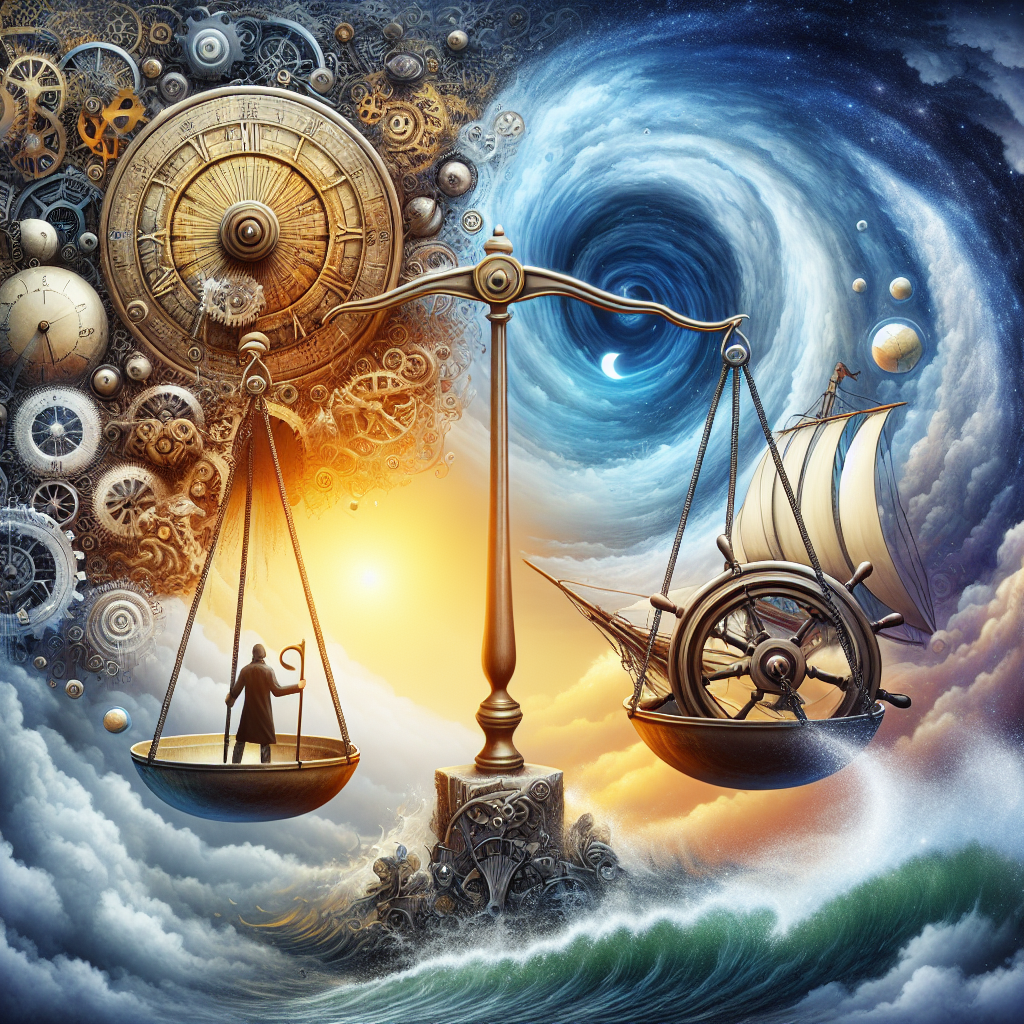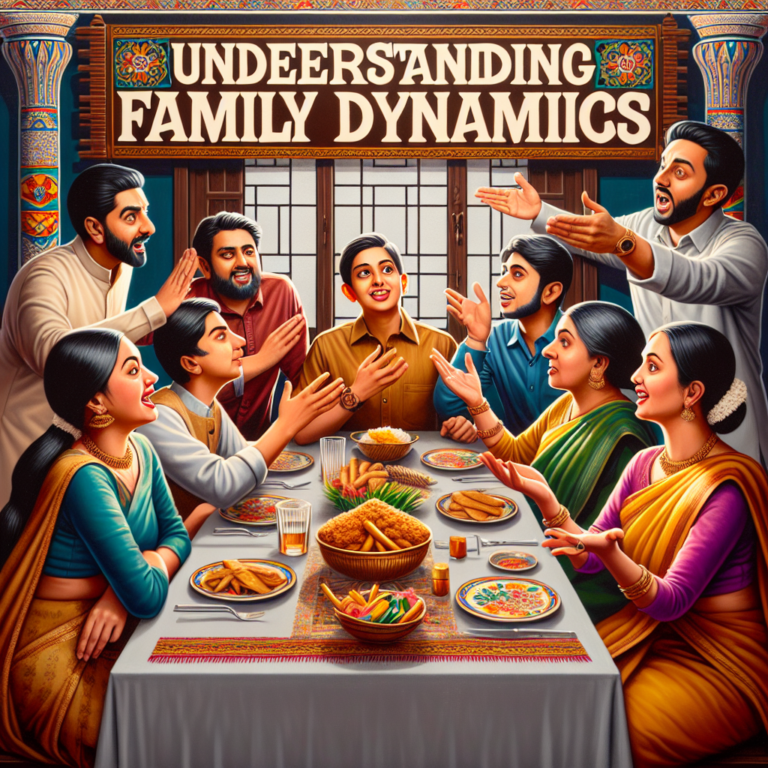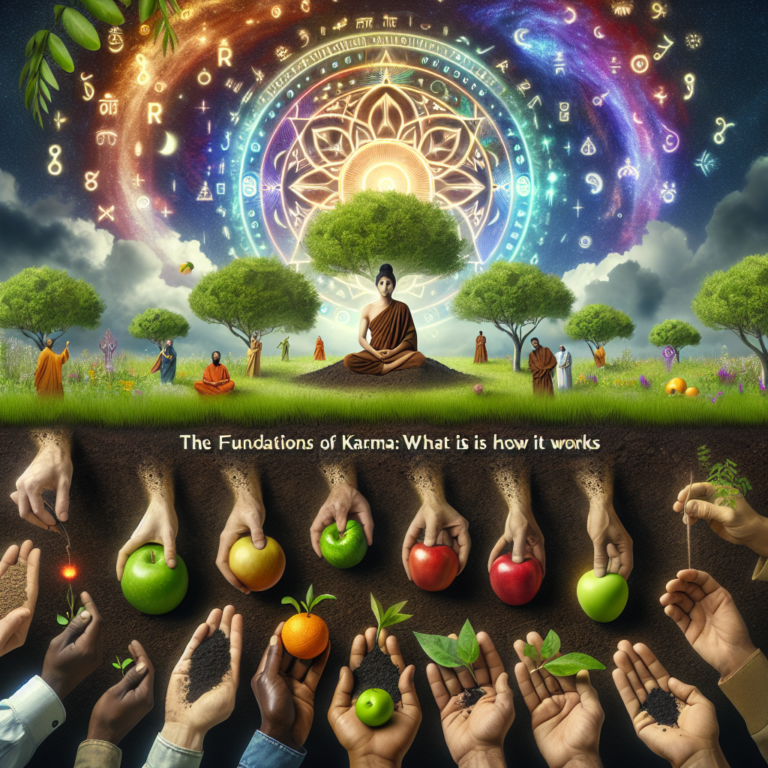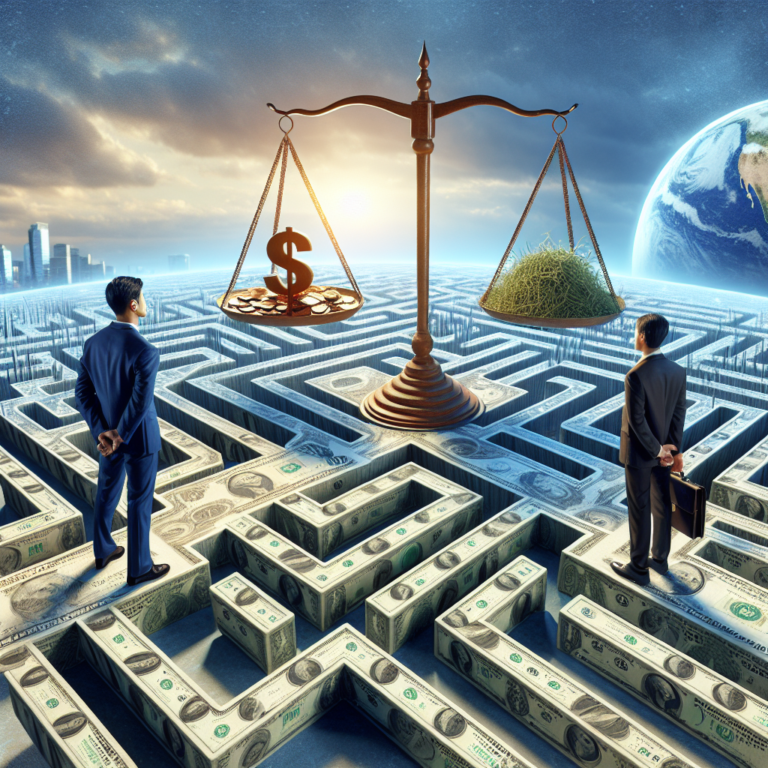The philosophical debate surrounding destiny and free will has persisted for centuries, captivating the minds of thinkers from various disciplines. Are our lives predetermined by fate, or do we possess the ability to make genuine choices that shape our future? This article delves into the complexities of these concepts, exploring their definitions, historical context, and the implications they hold for our understanding of human existence.
Understanding Destiny
Destiny can be defined as a predetermined course of events that is said to be beyond human control. Many believe that external forces, whether divine or cosmic, dictate the path of our lives. This perspective often aligns with religious beliefs that posit a higher power orchestrating the events of the universe.
Philosophical Perspectives on Destiny
Throughout history, various philosophers have presented arguments for the concept of destiny. Ancient Greek philosophers such as Heraclitus, and later the Stoics, emphasized the idea of a cosmos governed by a rational order. In particular, the Stoics believed in fate as a deterministic force that shapes the world and individual lives.
Religious Implications of Destiny
In many religious frameworks, destiny is closely associated with divine providence. The Abrahamic religions, for example, often teach that an omnipotent God has a specific plan for each individual. This belief leads to a sense of comfort in the notion that life events, even tragic ones, are part of a larger divine narrative.
The Concept of Free Will
Contrastingly, free will is the ability to make autonomous choices that are not predetermined by external forces. It suggests that individuals have the power to influence their circumstances through their actions. The notion of free will raises questions about moral responsibility, accountability, and personal agency.
Philosophical Perspectives on Free Will
Philosophers have examined free will extensively, grappling with issues related to determinism and moral accountability. The contrast between determinism (the idea that every event has a cause) and libertarian free will (the belief that individuals can choose differently) highlights the tension in understanding human agency. Notable figures such as René Descartes defended the idea of free will, asserting that human reasoning is the essence of our nature.
Scientific Considerations
The scientific community has also influenced the debate on free will. Neurology and psychology have made strides in understanding human behavior, offering insights into how much of our decision-making may stem from unconscious processes. Studies have suggested that many of our choices may be influenced by brain activity that occurs before we are consciously aware of our decisions.
The Intersection of Destiny and Free Will
One of the most intriguing aspects of the destiny vs. free will debate is how these two concepts may coexist. Can we accept that while certain events in our lives may be predetermined, we still have the capacity to make choices within that framework?
Compatibilism: A Middle Ground
Compatibilists argue that free will and determinism are not mutually exclusive. They posit that even if our choices are influenced by prior causes, we can still act freely when those choices align with our desires and intentions. This perspective offers a nuanced understanding of human agency and accountability.
Practical Implications of Destiny and Free Will
The implications of how we view destiny and free will significantly impact our behavior, relationships, and mental health. Individuals who believe strongly in destiny may feel a sense of fatalism, leading to passivity in their lives. Conversely, those who champion free will may experience heightened stress from the burden of choice and responsibility.
Case Studies in Destiny vs. Free Will
1. Cultural Contexts
Different cultures exhibit varying beliefs regarding destiny and free will. In many Eastern philosophies, such as Buddhism and Hinduism, the cycle of karma emphasizes that actions taken in past lives influence the current one, suggesting an interplay between destiny and choice. In contrast, Western cultures often emphasize individualism and personal agency, valuing the capacity to overcome adversity through sheer will.
2. Personal Anecdotes
Through real-life examples, individuals often recount experiences where a series of events seem to lead them toward an inevitable outcome, reinforcing the idea of destiny. Alternatively, many also share transformative experiences where active choices shifted the trajectory of their lives drastically, highlighting the power of free will.
The Role of Psychology in Destiny and Free Will
Psychology offers valuable insights into how beliefs about destiny and free will influence behavior and mental health. Understanding the psychological underpinnings of these beliefs can provide clarity on how they shape human experiences.
Self-Determination Theory
This theory emphasizes autonomy, competence, and relatedness as essential human needs. When individuals perceive themselves as having free will, they often experience higher motivation and improved well-being. Conversely, feelings of helplessness or fatalism can lead to decreased motivation and increased mental health issues.
Growth Mindset vs. Fixed Mindset
Moreover, having a growth mindset—the belief that abilities and intelligence can be developed—aligns with the idea of free will. Individuals with a growth mindset are more likely to take initiative and embrace challenges, while those with a fixed mindset may feel restricted by their circumstances, fostering a sense of inevitability in their lives.
Modern Interpretations: Technology and Destiny
The advent of technology and the digital age has further complicated the conversation surrounding destiny and free will. Algorithms, data-driven decisions, and artificial intelligence increasingly impact our choices, leading to questions about the impact of external forces on personal agency.
The Influence of Algorithms
As technology continues to shape our lives, the concern arises that algorithms may influence not only our purchasing decisions but also our opinions and interactions. This raises the question: do we retain control over our choices, or are they being subtly steered by forces beyond our awareness?
Artificial Intelligence and Decision-Making
AI systems are designed to analyze data and provide recommendations that can dictate human choices, blurring the line between free will and external influence. As we increasingly rely on technology, the discussion around autonomy becomes even more critical.
Destiny, Free Will, and Ethics
The relationship between destiny and free will carries profound implications for morality and ethics. If individuals are seen as victims of circumstance, does it absolve them of responsibility for their actions? Conversely, if individuals have absolute free will, how do we account for influences such as environment, upbringing, and biology?
Accountability and Moral Responsibility
The legal system often grapples with the question of intent and responsibility, recognizing that while people are influenced by their contexts, they are still held accountable for their actions. This raises complex questions regarding the justice system and rehabilitation versus punishment.
Ethical Dilemmas
Ethically, individuals must navigate the waters of responsibility and consequence in a world that may feel both predetermined and chaotic. The ability to confront personal choices and their ramifications fosters a sense of empowerment and accountability.
Conclusion
The debate between destiny and free will is complex and multifaceted, encompassing philosophical, psychological, cultural, and ethical dimensions. Whether we lean toward believing in a preordained path or the power of personal choice, it’s clear that our views on these topics significantly influence how we approach our lives and make decisions. Finding a balance between accepting certain aspects of our lives as fated while still recognizing our capacity for agency may be the key to a healthier, more empowered existence.
FAQs
1. Is destiny a real concept?
Destiny is subjective; some people believe in it as a guiding force, while others view life events as a result of randomness or choice.
2. Can free will coexist with destiny?
Yes, many philosophers argue that free will and destiny can coexist through the concept of compatibilism, acknowledging an interplay between predetermined events and individual choices.
3. How do beliefs about free will affect mental health?
Believing in free will can enhance motivation and foster a sense of agency, while feelings of fatalism may lead to helplessness and decreased well-being.
4. What role does culture play in shaping views on destiny and free will?
Cultural narratives and belief systems significantly influence how individuals perceive destiny and free will, informing personal values and behaviors.
5. Can technology undermine our free will?
While technology can influence our choices through algorithms and recommendations, individuals still have the capacity to exercise free will, albeit with increased complexity in decision-making.
It looks like your message got cut off. Could you please provide more details or context regarding the prompt you’re referring to? I’m here to help!, #Destiny #Free #Control, #Destiny #Free #Control, 1736545378, destiny-vs-free-will-are-we-in-control





